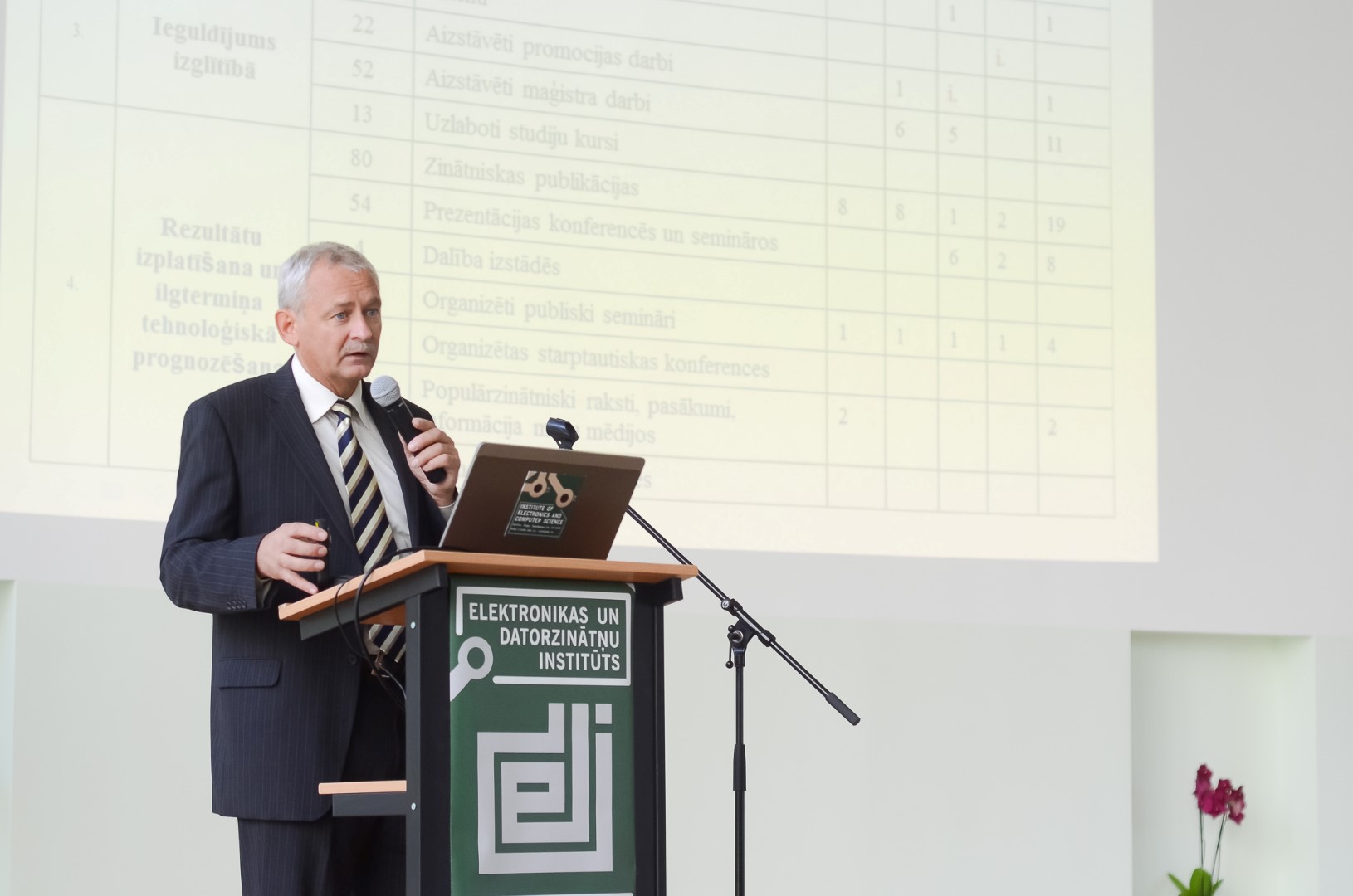
EDI was founded in 1960 within the framework of the Latvian Academy of Sciences and is currently a state research institute conducting fundamental and applied research in following Latvian Smart Specialization Strategy (RIS3) areas: “Information and Communication Technologies” and “Intelligent Materials, Technologies and Engineering Systems”, and scientific priority directions:
- Life sciences, applied mathematics, information and communication technologies for the development of the knowledge economy, intelligent materials and technologies for adding value to products and processes and strengthening cyber security;
- Public health, sport, well-being and demography;
- Knowledge culture and innovation for economic sustainability;
- Open, inclusive society and social security;
- Public security and defense challenges.
EDI is specializing in the development of Smart Embedded Cooperative systems covering the following research areas: Extremely precise event timing, Remote sensing and space data processing, Robotics and machine perception, Signal processing and embedded intelligence, Smart sensors and IoT.
The strategic goal of EDI is to foster the development of a knowledge-based economy in Latvia, in accordance to the science and technology development policies set by the Latvian government. This goal is reached by creating new knowledge and developing innovative technologies the application of which in the national economy ensures essential and sustainable progress in creating new products with high added value. Therefore the sustainable development of ICT and electronic equipment production industry is fostered and the global competitiveness of Latvia and the EU is increased.
EDI vision is to become an acknowledged centre in the development of electronics, computer sciences, IT and related engineering sciences in Europe. Its main research areas lie in creation of systems for integrated signal and data acquisition, processing and transferring (methods, equipment and software).
In 2014 and 2021 there were carried out in Latvia the International evaluation of scientific institutions activities. Experts rated EDI performance as excellent or good, and the EDI is the only state scientific institution in the field of engineering win this assessment evaluated as a high-level, strong and internationally important institution.
EDI has a workforce of 80+ scientific personnel (a total employees: 100+), of which 50+ are in elected academic positions – leading researchers, researchers and assistants.
Financial resources of the institute shall be formed from the resources of local and international funding for financing research projects in accordance with competition procedures.
Status
EDI is the state research institute – a derived public person under the supervision of the Minister of Education and Science of Latvia. (Since January 6, 2007, in accordance with the changes made in the Latvian Law of Scientific activity)
The activities of EDI are regulated by the Latvian Law of Scientific activity and statute of EDI . The decision-making body of EDI is the Scientific Council. The daily administrative operations of EDI are ensured by a director, elected by the Council.
Structure
Institute consists of:
- 1.1. Directorate
- Director – Modris Greitāns
- Deputy Director for development – Kaspars Ozols
- Deputy Director for administrative matters – Iveta Rubika
- Administrator – Liene Zake
- Personnel specialist – Parsla Krumina
- Information Management Specialist – Jolanta Beitane
- Lawyer – Sintija Sīmane
- 1.2. Technical and maintenance section
- Main Engineer – Ģirts Budevics
- 1.3. Accounting
- Main accountant – Māra Rība
- Senior Accountant – Ziedite Migliniece
- Senior Accountant – Iveta Lukstiņa
- Research laboratories:
+ AC&CS Editorial office;
+ Secretary of scientific activities;
+ Purchasing commission.

